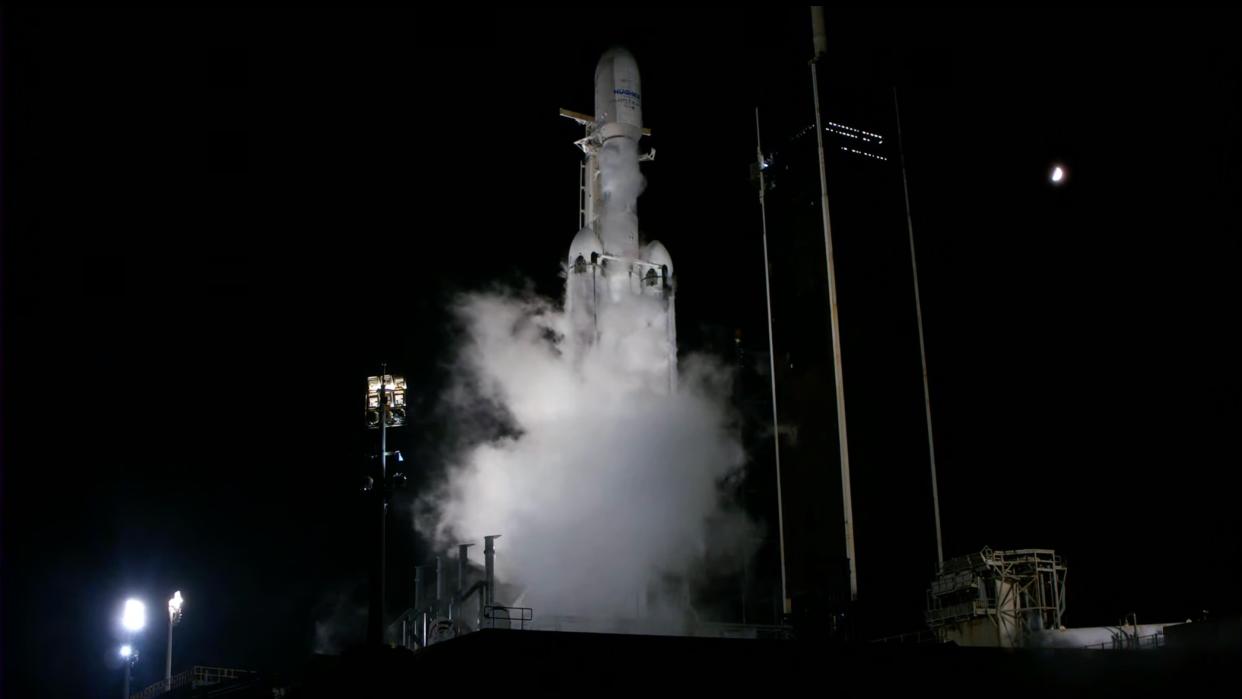SpaceX scrubs record-breaking Falcon Heavy rocket launch (video)

We'll have to wait at least another day to see SpaceX's powerful Falcon Heavy rocket lift off for the seventh time.
The Falcon Heavy was scheduled to launch Wednesday night (July 26) at 11:04 p.m. EDT (0304 GMT on July 27) from Pad 39A at NASA's Kennedy Space Center in Florida. But it wasn't to be; the launch team called things off with 65 seconds left on the countdown clock, for reasons that weren't immediately clear.
The next launch opportunity will come Thursday night (July 27) at the same time, according to SpaceX. If the company decides to go for that window, you can watch it live here at Space.com.
Related: SpaceX launches 3 satellites to orbit on 6th-ever Falcon Heavy mission

The launch, whenever it happens, will send the huge Jupiter 3 communications satellite to orbit.
Jupiter 3 is the largest commercial communications satellite ever built, according to its operator, Hughes Network Systems. The satellite weighs 10.1 tons (9.2 metric tons) and, when fully deployed, will have a wingspan similar to that of a commercial jet.
RELATED STORIES:
— SpaceX's Falcon Heavy rocket: By the numbers
— SpaceX Falcon Heavy launch spotted from space station (photo)
— SpaceX's 1st Falcon Heavy rocket launched Elon Musk's Tesla into space
The Falcon Heavy has launched six times to date, including three times since November 2022. The rocket debuted in February 2018, on a test flight that sent Elon Musk's red Tesla Roadster aloft with a spacesuit-clad mannequin named Starman at the wheel.
The Falcon Heavy is the second-most powerful rocket flying today, generating more than 5 million pounds of thrust at liftoff. The most powerful vehicle, NASA's Space Launch System (SLS), produces about 8.8 million pounds of thrust.
But SLS won't hold the title for long, if all goes according to SpaceX's plan. The company's next-generation Starship vehicle, which is still in development, generates about 16.7 million pounds of thrust.

